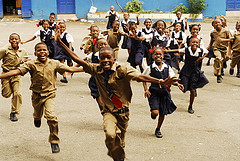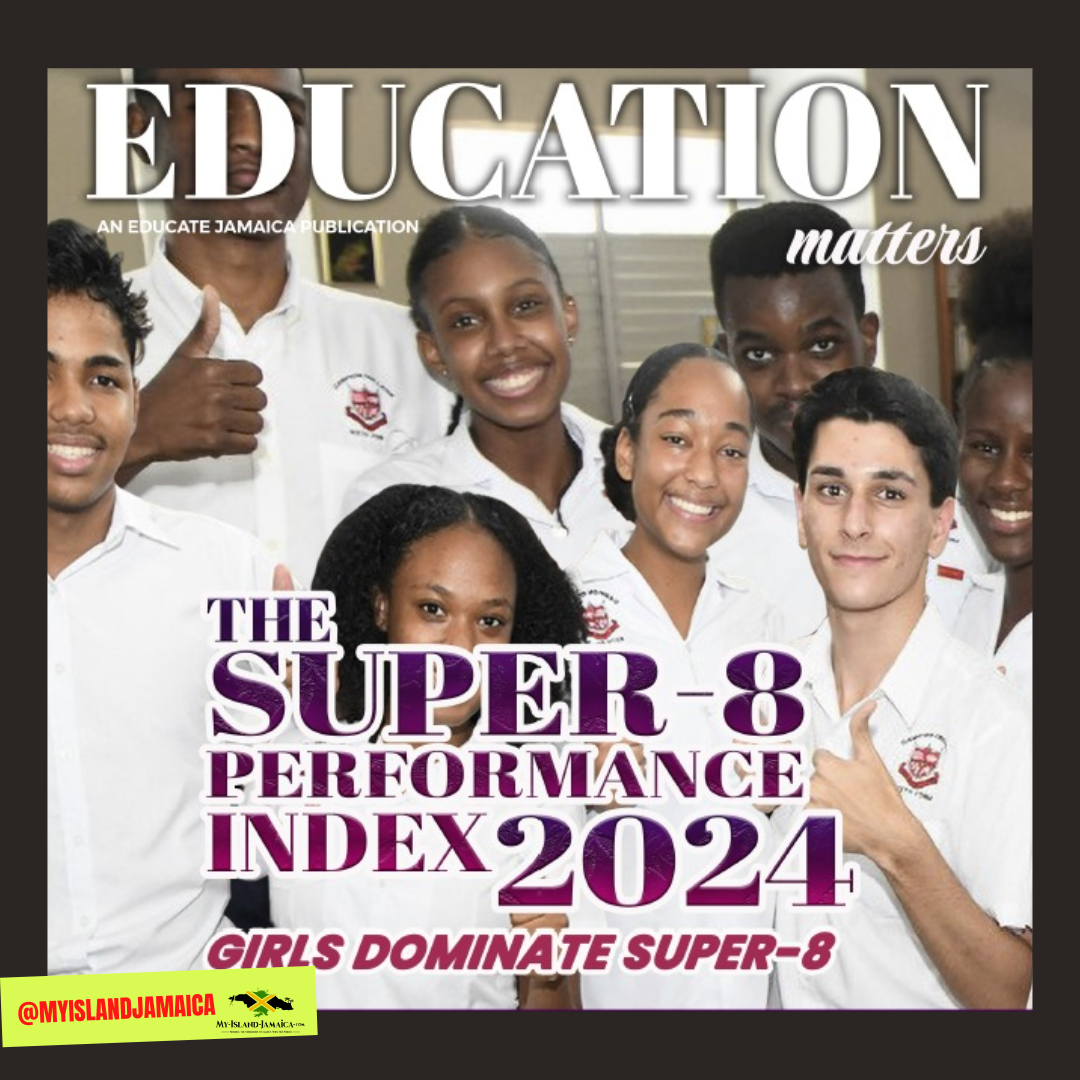Subscribe for all my updates and don't miss a thing! Sign me up!
An Overview of
Education in Jamaica
Sharing Is Caring! Share this awesome content with your friends now.
 Education in Jamaica | School Children
Education in Jamaica | School ChildrenBy Dorrett Simmons
The education system in Jamaica has come a far way. Children are starting school way earlier than before and even adults who have left the school system for years are now going back to complete and further their studies. Here is an overview of education in Jamaica.
New! Take a piece of Jamaica with you💃!
Savour the memories! Now you can get your authentic Jamaican souvenir items, as well as traditional Jamaican herbs, spices and housewares on our popular e-store. Click Here to learn more.
And, if you ever need a trustworthy and knowledgeable local guide, consider booking a private tour with us!
Early Childhood Education
Formal education in Jamaica starts at the tender age of 2 years old! Impressive, isn’t it? The foundation of our education system lies within early childhood with what we call Basic or Infant School. Then there is Kindergarten or Preparatory; the latter is not a preference for the lower income earner as these schools attract exorbitant fees.
Most schools accept children starting at age 3. Others may take them as young as 2 years old. Children at Basic or Infant school age usually attend from age 3 – 5 years.
Some Day Care Centers, in addition to giving child care, they also offer limited early childhood education which prepares them for Basic or Infant School. They are taught the alphabet, how to count as well as numerous songs and nursery rhymes.
This is a critical period for young children but until recently a lot of parents didn’t think that early childhood education was important.
A lot of them think it’s a waste of money but thank God they are now realizing that young minds are developed at a very tender age.
Primary Education In Jamaica
Primary education prepares children for Secondary Education and starts at Grade 1 for 6 year olds, to Grade 6 for 12 or 13 year olds.
Today, we have Primary & Junior High Schools that goes up to Grade 9 but there is also All Age Schools which go up to Grade 6.
Throughout the first 6 years, a series of tests are done in order to assess the children’s skills and abilities.
- Grade 1 Readiness Test
- Grade 3 Assessment Test in Mathematics and Language Arts
- Starting at Grade 4 and up to Grade 6, students take their Primary Exit Profile (PEP) assessments.
Primary Exit Profile (PEP)
PEP has replaced the Grade Six Achievement Tests (GSAT) since 2018. It's main focus is to enhance the academic and critical thinking capabilities, and creativity of students by the end of primary level education. Starting at grade 4, students participate in a series of tests in three categories:
- Performance Task
- Ability Test
- Curriculum Based Test
Because of this, students are encouraged to take after class studies to maximize their learning ability in order to get into a reputable high school.
By that, we mean the traditional ones that are more rated than others. Some of these Primary education schools in Jamaica operate on a shift basis which entails children going to school from 7:30 am to 12:15 pm for Shift One. Shift Two typically runs from 12:30 pm to 5:15 pm.
Six graders who are on shift one do their after class studies (private lessons) after their shift ends while those who are on shift two would do theirs before their shift starts as teachers do not want to have their students out too late in the evening.
By the way, private lessons attract a fee!
Some of those who do extremely well in the GSAT are rewarded with scholarships and are therefore placed in the traditional and coveted high schools. Here are some of these prominent schools, to name a few:
- Mount Alvernia High School (all girls)
- Cornwall College (all boys)
- Montego Bay High School (all girls)
- Herbert Morrison Technical High School (co education)
- Calabar High School
- Munroe High School
- St. Jago High School
- Ardenne High School
- Ruseas High School
- Mannings High
- Immaculate Conception High School
Those who do not get the very high marks are placed in other high schools. These schools, however are fairly good schools as well and they all have the ultimate goals of teaching the students well and training them to be exemplary adults in the future.
Secondary Education in Jamaica
Students are exposed to a lot more subjects in Secondary education in Jamaica.
For most students, this is where they are introduced, for the first time to a foreign language. Some preparatory schools (at basic or primary level) introduce their students to Spanish and also to basic computer training. But Secondary education is the stepping stone and the foundation to students’ future career and further education.
Foreign subjects include Spanish, French and German. Other subjects are English Language, English Literature, Mathematics, Integrated Science, Food and Nutrition, Religious Education, Clothing & Textiles and Art & Craft.
By the time students reach the fourth form, they already have an idea as to what they want to be in life and as such are grouped according to their career choice and the subjects which will enable them to achieve their goals.
They are given the option to choose their subjects with the understanding that Mathematics and English Language are compulsory.
At this level of education in Jamaica, students are now introduced to Chemistry, Physics, Human & Social Biology and Biology.
At the end of fifth form (11th grade) students sit their CXC exams. The Caribbean Examination Council (CXC) was established among the English Speaking Caribbean Commonwealth Countries and Territories. This exam tends to be easier to students as they are given the opportunity to do School Based Assessment (SBA) tests which is sort of an assignment and assists with getting more grades for the student.
Sixth Form Pathway Programme
But High School doesn't end there. Some students move on to 6th form (12th and 13th grades). While this is not mandatory it is highly recommended. Students at the 6th form level complete their CAPE and GCE examinations.
The ministry of education has recently implemented what is called the Sixth Form Pathway Programme. With this programme at the end of grade eleven students will move on to complete subjects and programmes that are geared to prepare them for the working world. At the end of their secondary education students will leave with one or more of the following:
- An Occupational Associate Degree
- Certificate/Diploma (within an Occupational discipline)
- An accredited CCCJ/UCJ Associate Degree
- CAPE Subjects or the CAPE Associate Degree
- NVQJ/CVQ Level 2 or 3
- Dual certification in CAPE Associates Degree in Industrial Technology and City and
- Guilds Engineering Level 3
Vocational and Tertiary Education
More and more teens are enrolling in vocational or tertiary institutions at the end of their secondary education.
The island's leading vocational institution is ran by the HEART Trust NTA. They provide a range of programmes at different levels, electrical, early childhood education, food and beverage preparation, plumbing and hospitality are just a few of the popular one.
Tertiary institutions such as UWI (University of the West Indies) and Utech (University of Technology), along with NCU (Northern Caribbean University) have been top choices for students looking to pursue higher education for career choices such as nurse, doctors, lawyers, accountants.
Education in Jamaica is now highly comparable to some of the major countries in the world.
Way to go Jamaica!
Sharing IS Caring! Please help me get the message out by sharing this article with your friends on social media (links below). Thnx ;-)
If you found this page useful, please consider subscribing to my weekly newsletter, to get even more.
It tells you each week about the new information that I have added, including new developments and great stories from lovers of Jamaica!
Return to Universities in Jamaica from Education in Jamaica
Return to My Island Jamaica Homepage from Education in Jamaica
References & Sources For Education in Jamaica
- https://jis.gov.jm/information/get-the-facts/get-the-facts-primary-exit-profile-pep/
- https://educate.gov.jm/wp-content/uploads/2021/09/Sixth-Form-Pathways-Programme-Supervision-Framework-v7-20210428.pdf
New! Get My Latest Book👇🏿
|
You asked, I've answered! You no longer need to save for months or years, to enjoy paradise! I spilled the beans! sharing my top tips on finding cozy accommodations and secret gems, only the way a native could! Click Here to pick it up on my e-store and start saving now! |
See The Best Of Jamaica - In Videos!
|
My channel reaches over 140,000 subscribers worldwide and has leveraged over 11 million views, sharing, what I call 'The Real Jamaica'. Subscribe today and join our family of viewers. |
Read More ...
New! Experience The REAL Jamaica!
Book Your Private Tour here and experience Jamaica the way we (locals) do!
P.S. Didn't find what you were looking for?
Still need help?
Click Here to try our dependable and effective Site Search tool. It works!
Or, simply click here and here, to browse my library of over 500 questions and answers! Chances are someone already asked (and got an answer to) your question.
















New! Comments
Have your say about what you just read! Leave me a comment in the box below.